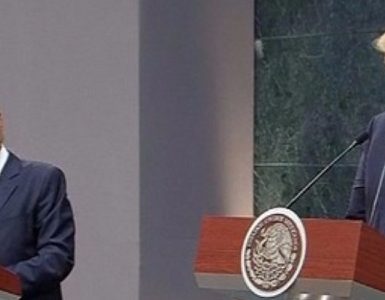Latin American nations are watching, almost helplessly, as their brightest young minds pack up and leave. From engineers to PhDs, thousands of graduates have migrated over the past decade, chasing better opportunities abroad. Today, in some countries, nearly 1 in 10 citizens now live overseas, according to the IMF.
Mexico alone has seen over 1.2 million university-educated citizens relocate — mostly to the U.S. and Canada. That’s a brain drain of staggering proportions.
In the Caribbean, the situation is even starker. More educated people live in the diaspora than in their home countries. For Central America, the numbers tell a similar story.
The brain drain has locked the region in a vicious cycle: low growth fuels migration, and migration weakens long-term growth. Countries with a high outflow of skilled workers lose about 0.28 percentage points of GDP growth each year, while increased remittances only add back 0.19 points.

“Many young people set their sights abroad even before completing their studies,” said Pablo Baldomá Jones, co-founder of Alto, a talent-matching platform recently acquired by Revelo.
The departure of researchers is particularly alarming. A 2018 OECD study found that 40% of Latin America’s PhD holders were living outside the region.
Mexico tops the list of Latin American countries losing skilled professionals to the U.S. and Canada. Meanwhile, in most Caribbean nations, between 24% and 58% of all emigrants in OECD countries have tertiary-level education.
Argentina, battling economic instability, is now in the middle of a fresh wave of outmigration. Over 300,000 Argentines, many of them young professionals, have left in recent years.
Colombia is in the same boat — over 400,000 skilled Colombians are estimated to be living abroad. But not everyone is giving up.
The Dream of Going Abroad
“I’ve seen how widespread the perception is that success must be sought elsewhere,” Pablo added.
For years, Pablo’s company linked Latin American tech talent with U.S. firms — slowing the brain drain, if only slightly.
“Now, I’m actively preparing to return to Argentina, convinced that the knowledge and experience I’ve gained in Europe can make a meaningful contribution to the Latin American tech and business landscape.”
Analysts believe returnees like Pablo could uplift living standards in their home countries, as they are expected to start businesses and generate much-needed jobs.
Pablo urges Latin American nations to build environments where talent can thrive — and make it easier for people to return when the time feels right.
“Countries like Poland and Romania have shown that reversing brain drain is possible through sustained investment in infrastructure, digital transformation, and trust in institutions,” he added.
This is precisely why some Latin Americans choosing not to return home are voicing their frustration on social media.
Over the last 20 years, Latin American governments have rolled out several programs to bring back skilled and wealthy emigrants. The results, however, have been underwhelming.
In 2005, Mexico launched the Global MX Network, aimed at linking highly skilled Mexicans abroad with projects in innovation, education, and entrepreneurship at home. While the network remains active in San Francisco, London, and Berlin, there’s little sign of real impact.
Colombia’s Retorno de Investigadores offered grants and seed funding to encourage expatriate researchers to return and contribute to national innovation. This has notably strengthened research ecosystems in public universities.
Another Colombian initiative, Nos Une, has tapped into diaspora expertise and networks to support startups — successfully sparking collaborative ventures.
Argentina’s RAICES program shares the same mission but hasn’t delivered comparable results.
Chile’s Becas program provides grants for students pursuing higher studies abroad — with one condition: they must return and work in Chile. If not, they must repay the grant.
In 2001, Brazil introduced Science Without Borders, sponsoring 100,000 students and researchers to study abroad. Unfortunately, very few returned. The program was ultimately suspended in 2017.







Add comment